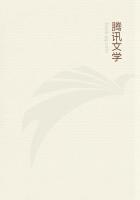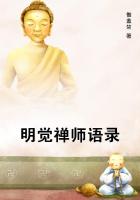We might have made mention above also of the sciences which investigate the laws of human thought, i.e., logic and dialectics. In these, however, eternal truths do not fare any better. Herr Dühring declares that dialectics proper is pure nonsense; and the many books which have been and are still being written on logic provide abundant proof that here, too, final and ultimate truths are much more sparsely sown than some people believe.
For that matter, there is absolutely no need to be alarmed at the fact that the stage of knowledge which we have now reached is as little final as all that have preceded it. It already embraces a vast mass of judgments and requires very great specialisation of study on the part of anyone who wants to become conversant with any particular science. But a man who applies the measure of genuine, immutable, final and ultimate truth to knowledge which, by its very nature, must either remain relative for many generations and be completed only step by step, or which, as in cosmogony, geology and the history of mankind, must always contain gaps and be incomplete because of the inadequacy of the historical material -- such a man only proves thereby his own ignorance and perversity, even if the real thing behind it all is not, as in this case, the claim to personal infallibility. Truth and error, like all thought-concepts which move in polar opposites, have absolute validity only in an extremely limited field, as we have just seen, and as even Herr Dühring would realise if he had any acquaintance with the first elements of dialectics, which deal precisely with the inadequacy of all polar opposites. As soon as we apply the antithesis between truth and error outside of that narrow field which has been referred to above it becomes relative and therefore unserviceable for exact scientific modes of expression, and if we attempt to apply it as absolutely valid outside that field we really find ourselves altogether beaten: both poles of the antithesis become transformed into their opposites, truth becomes error and error truth. Let us take as an example the well-known Boyle's law. According to it, if the temperature remains constant, the volume of a gas varies inversely with the pressure to which it is subjected.
Regnault found that this law does not hold good in certain cases. Had he been a philosopher of reality he would have had to say: Boyle's law is mutable, and is hence not a genuine truth, hence it is not a truth at all, hence it is an error. But had he done this he would have committed an error far greater than the one that was contained in Boyle's law; his grain of truth would have been lost sight of in a sand-hill of error; he would have distorted his originally correct conclusion into an error compared with which Boyle's law, along with the little particle of error that clings to it would have seemed like truth. But Regnault, being a man of science, did not indulge in such childishness, but continued his investigations and discovered that in general Boyle's law is only approximately true, and in particular loses its validity in the case of gases which can be liquefied by pressure, namely, as soon as the pressure approaches the point at which liquefaction begins. Boyle's law therefore was proved to be true only within definite limits. But is it absolutely and finally true within those limits? No physicist would assert that. He would maintain that it holds good within certain limits of pressure and temperature and for certain gases; and even within these more restricted limits he would not exclude the possibility of a still narrower limitation or altered formulation as the result of future investigations. *2 This is how things stand with final and ultimate truths in physics, for example.
Really scientific works therefore, as a rule, avoid such dogmatically moral expressions as error and truth, while these expressions meet us everywhere in works such as the philosophy of reality, in which empty phrasemongering attempts to impose itself on us as the most sovereign result of sovereign thought.
But, a naive reader may ask, where has Herr Dühring expressly stated that the content of his philosophy of reality is final and even ultimate truth {D. Ph. 2}? Where? Well, for example, in the dithyramb on his system (page 13), a part of which we cited in Chapter II. Or when he says, in the passage quoted above: Moral truths, in so far as their ultimate bases are understood, claim the same validity as mathematical insights.
And does not Herr Dühring assert that, working from his really critical standpoint {D. Ph. 404} and by means of those researches of his which go to the root of things {200}, he has forced his way through to these ultimate foundations, the basic schemata, and has thus bestowed final and ultimate validity on moral truths? Or, if Herr Dühring does not advance this claim either for himself or for his age, if he only meant to say that perhaps some day in the dark and nebulous future final and ultimate truths may be ascertained, if therefore he meant to say much the same, only in a more confused way, as is said by "mordant scepticism" and "hopeless confusion"{194} -- then, in that case, what is all the noise about, what can we do for you, Herr Dühring? [Goethe, Faust , Act I, Scene III ("Faust's Study"). -- Ed .]
If, then, we have not made much progress with truth and error, we can make even less with good and evil. This opposition manifests itself exclusively in the domain of morals, that is, a domain belonging to the history of mankind, and it is precisely in this field that final and ultimate truths are most sparsely sown. The conceptions of good and evil have varied so much from nation to nation and from age to age that they have often been in direct contradiction to each other. -- But all the same, someone may object, good is not evil and evil is not good, if good is confused with evil there is an end to all morality, and everyone can do as he pleases.














